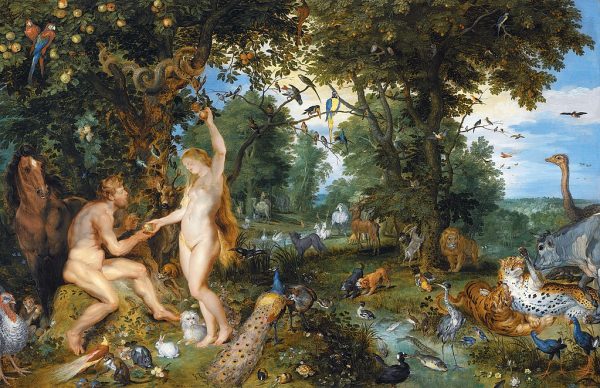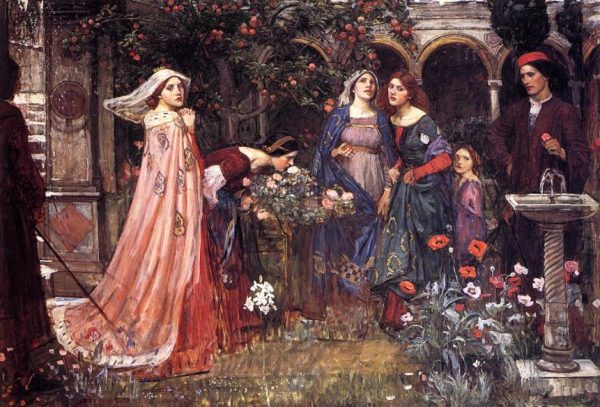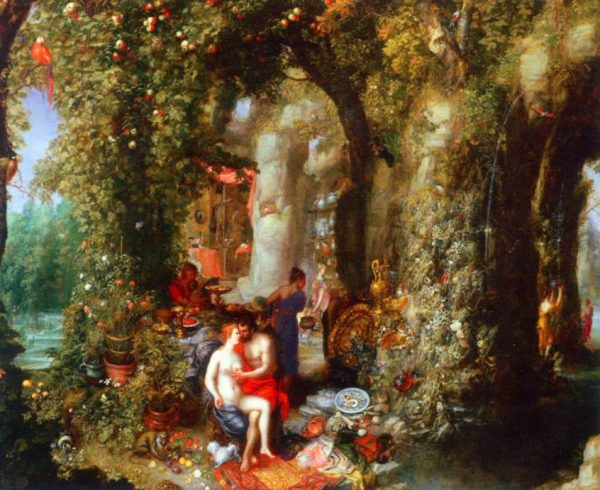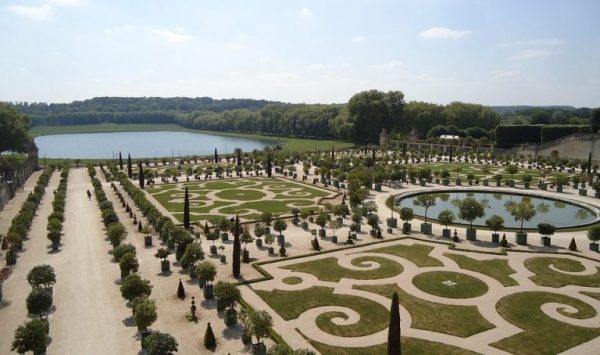
by Peter Paul Rubens and Jan Brueghel the Elder, Wikimedia Commons
Anybody familiar with the great myths, legends and epics of history will know that gardens have long fascinated the human mind—from the tale of Gilgamesh to the Bible to the Odyssey to the Decameron. Repeatedly, we have envisioned the summit of happiness as a garden experience. What is it about them—I have often wondered. Why do they occupy such fundamental, pivotal places in stories that are timeless and especially dear to us?
In his book Gardens: An Essay on the Human Condition (2008), Stanford professor Robert Pogue Harrison provides an interesting analysis of the phenomenon. Looking at gardens both real and imaginary, he articulates their significance and function, and the reason as to why they have been a source of perennial aesthetic delight to us. According to the author, human beings are not capable of gazing too long and hard at the “head of Medusa”—which is to say at violence, rage, destruction and suffering. And this is not our flaw.
The impulse to look away from the frenzy and tumult of existence is precisely what motivates us to create, to institute mechanisms that can make life bearable, even enjoyable—gardens happen to be one of them. They counter the annihilating and anarchic forces unleashed in history and re-enchant the world. (This restorative role is well on display in Giovanni Boccaccio’s Decameron, wherein seven young women and three young men leave behind a plague-ravaged Florence in the summer of 1348 to take refuge in a villa in the surrounding hills.) If not a heaven, a garden is at least a “haven”.

based on Giovanni Boccaccio’s Decameron (1313-1375), Wikimedia Commons
In a garden, appearances are lush, bright and colourful. Everything glows, looking as if originating from hidden, mysterious depths. Being itself seems full, an inexhaustible blessing. The cover of flowers and leaves gives the impression of operating as a portal to another dimension, a gateway to some otherworldly source—primal, rich and infinitely abundant. It is for this reason that gardens are often the sites of epiphanies—spiritual or erotic or otherwise.
Harrison adds that although they can quickly cast a spell on us, in truth we long for only a particular kind of garden. Within a garden in which everything pre-exists readily and faultlessly, we can surely succumb to boredom. If history without gardens is a wasteland, a garden severed from history is superfluous, pretty much useless. We want to be able to, to some degree, “engineer” the enchantment a garden provides, we wish to be engaged nurturers.
Even in our fictions, we see ourselves abandoning the gardens that do not present before us the challenge of cultivation. For instance, the garden mentioned in Homer’s Odyssey—on the island of Ogygia where the nymph Calypso keeps the hero Odysseus captive for years. This garden is exuberant but it is too magical and requires no human intervention. No wonder Odysseus rejects Calypso’s offer of immortality and decides to return to Ithaca to his aging wife Penelope—to the more demanding and uncomfortable life of commitments and concerns.

We dislike gardens that are too wild and perfect. We also find it difficult to entertain the ones that are too strictly regimented. Here Harrison uses a factual example—the Palace of Versailles, where the iron laws of symmetry can feel somewhat oppressive, whose meticulously manicured lawns are artificial, more representative of monarchical control than democratic participation.

Towards the end of the book, Harrison meditates—from a “gardenly” point of view—where do we stand? What is our situation today?
We find ourselves in absurdity. We want to re-Edenise the world through capitalistic forces, we aim towards a kind of abundance. But our frantic cult of consumerism, as it attempts to reach that position of intoxicated pleasure, mounts assault after assault on Creation. “Our action does not so much bear fruit as devour fruit,” the author notes. “Thus we find ourselves in the paradoxical situation of seeking to re-create Eden by ravaging the garden itself—the garden of the biosphere on the one hand and the garden of human culture on the other.”
At this juncture, all we can and must do is slow down, recover the lost art of registering the splendour of nature and learn back, if I may put poetically, our pre-lapsarian (from before “the Fall”) vocation of care.
Written by Tulika Bahadur.

